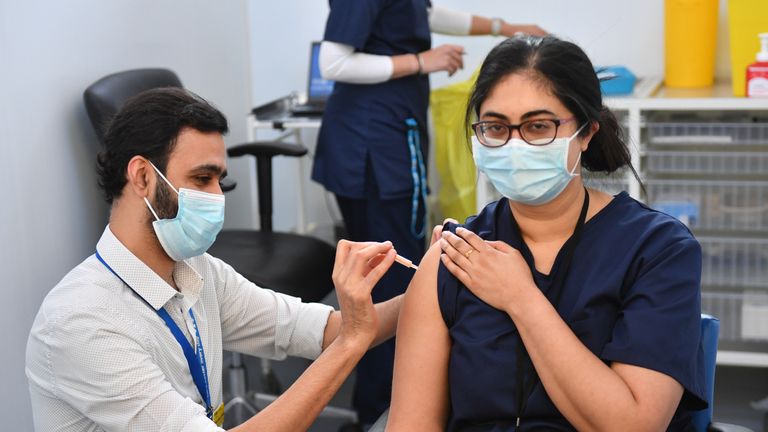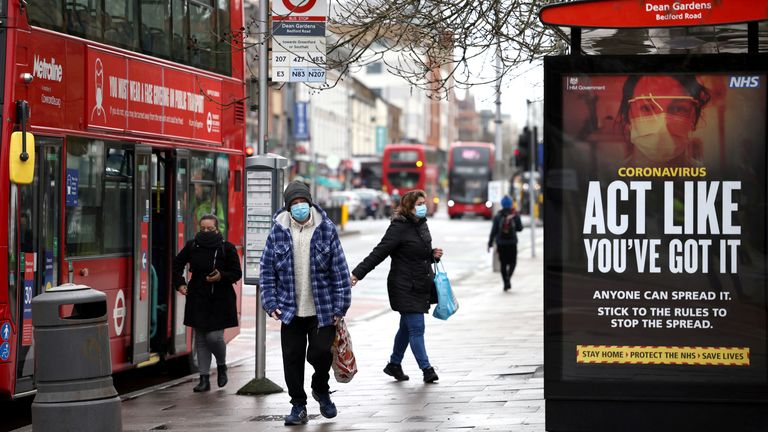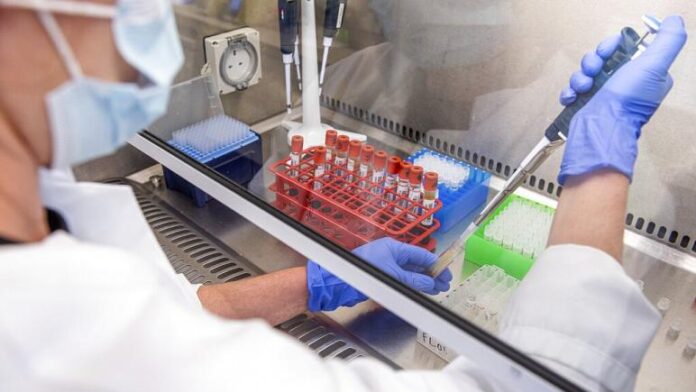The Oxford/AstraZeneca vaccine remains effective against the coronavirus variant first detected in Kent and the South East, researchers have found.
The researchers who developed the jab say it has a similar efficacy against the variant compared to the original COVID-19 strain it was tested against.
Professor Andrew Pollard, a chief investigator on the Oxford vaccine trial, said the new data suggests “the vaccine not only protects against the original pandemic virus, but also protects against the novel variant, B.1.1.7”.

That variant discovered at the start of December was partially blamed for coronavirus cases ballooning to record-high levels and then continuing to rise into the start of 2021, before lockdown was imposed across the country.
Professor Sarah Gilbert, another chief investigator on the Oxford vaccine trial, said that all viruses “accumulate mutations over time” and that for all influenza jabs there is a “well-known process of global viral surveillance” to allow for an “annual update of the vaccines”.

She said that coronaviruses are “less prone to mutation than influenza viruses”, but explained: “We have always expected that as the pandemic continues, new variants will begin to become dominant amongst the viruses that are circulating.”
And she added that “eventually a new version of the vaccine” will “be required to maintain vaccine efficacy at the highest level possible”.
Ministers in England are also planning a hotel quarantine system for travellers arriving in the UK from 32 countries to try to limit new strains being imported.
But they have been criticised for waiting until 15 February to bring in the policy, with Labour saying the delay is “beyond comprehension” and saying the measures “go nowhere near far enough to be effective in preventing further variants”.

Three vaccines have been approved for use by the UK’s medicines regulator – one by Oxford/AstraZeneca, another by Pfizer/BioNTech and the third by Moderna. Only the first two are currently being rolled out.
Several other jabs are in development and could get the all-clear for use, including Novavax and Johnson & Johnson, and research is under way to determine whether it could be safe and effective to mix and match different jabs.
The government also appeared to accidentally announce it intends for the vaccine rollout to reach all over-50s by May – an aim it has only said before should be hit by “the end of spring” without giving a firmer date.
Meanwhile, the UK’s R number, referring to the number of people an infected person will pass COVID-19 on to, is estimated to have narrowed slightly to between 0.7 and 1.
- SKY NEWS

